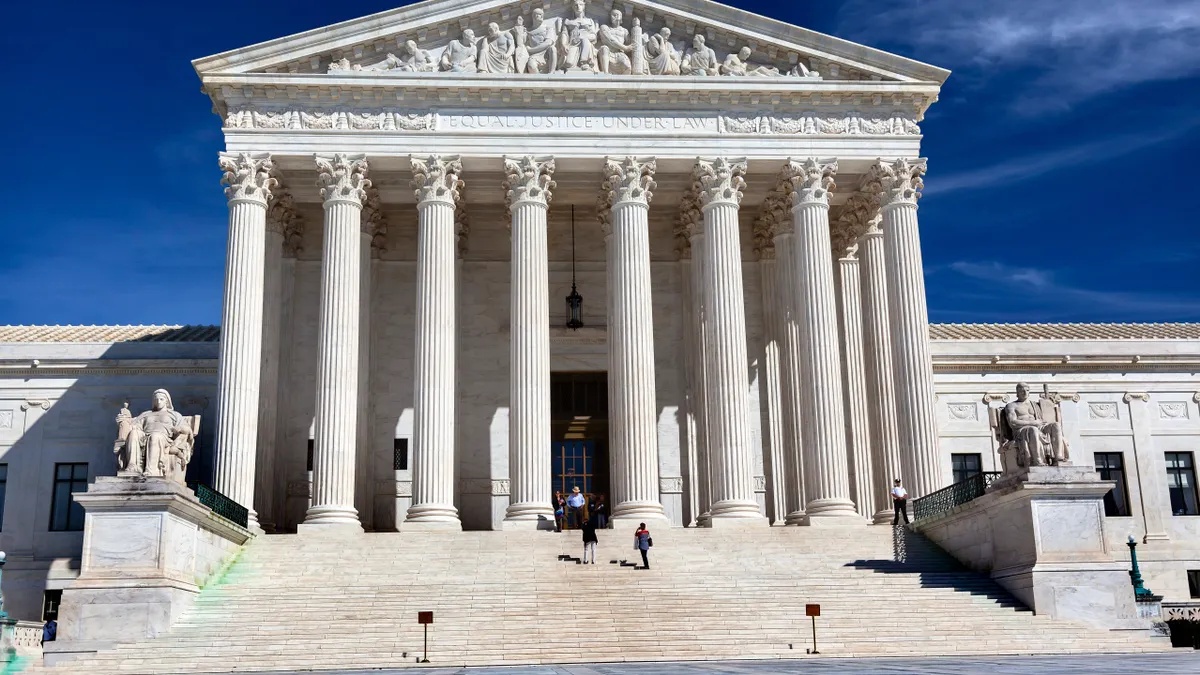Dive Brief:
- The Trump administration had the authority to promulgate a pair of regulations expanding employers' ability to claim an exemption from the Affordable Care Act (ACA)'s contraceptive mandate on the basis of either moral convictions or religious beliefs, the U.S. Supreme Court held in a 7-2 ruling Wednesday (Little Sisters of the Poor Saints Peter and Paul Home v. Pennsylvania, No. 19-431 (U.S. July 8, 2020)).
- In the ruling, penned by Associate Justice Clarence Thomas, the court also held that the administration's rules "are free from procedural defects." Respondents in the case had contended that the administration did not satisfy the requirements of the Administrative Procedure Act.
- "Concerns that the exemptions thwart Congress' intent by making it significantly harder for interested women to obtain seamless access to contraception without cost-sharing cannot justify supplanting the text's plain meaning," Thomas said. "Even if such concerns are legitimate, they are more properly directed at the regulatory mechanism that Congress put in place."
Dive Insight:
The High Court's ruling provides a measure of clarity on a long-standing legal dispute over the ACA. The ruling of the 3rd U.S. Circuit Court of Appeals has been reversed and the case will be remanded "with instructions to dissolve the nationwide preliminary injunction" on the rules.
In a concurring opinion, Associate Justice Elena Kagan wrote that while the administration expanded the ACA's original contraceptive coverage exemption, the administration's reading of the ACA's statutory delegation — specifically of the question of who must provide contraceptive coverage as defined by the Health Resources and Services Administration — has not.
"But that does not mean the Departments should prevail when these cases return to the lower courts," Kagan said. State governments, she noted, "challenged the exemptions not only as outside HRSA's statutory authority, but also as 'arbitrary [and] capricious' … Because the courts below found for the States on the first question, they declined to reach the second. That issue is now ready for resolution, unaffected by today's decision."
The U.S. Department of Health and Human Services' (HHS) 2017 interim final rules drastically expanded employers' opportunities for exemptions. Final rules followed in November 2018 but in January 2019, federal judges issued separate injunctions on these rules.
According to 2019 Society for Human Resource Management survey results, most employers (71%) offer contraceptive coverage. And experts previously told HR Dive that should the Supreme Court reach this conclusion, the largest impact may be felt at small and mid-sized employers.














